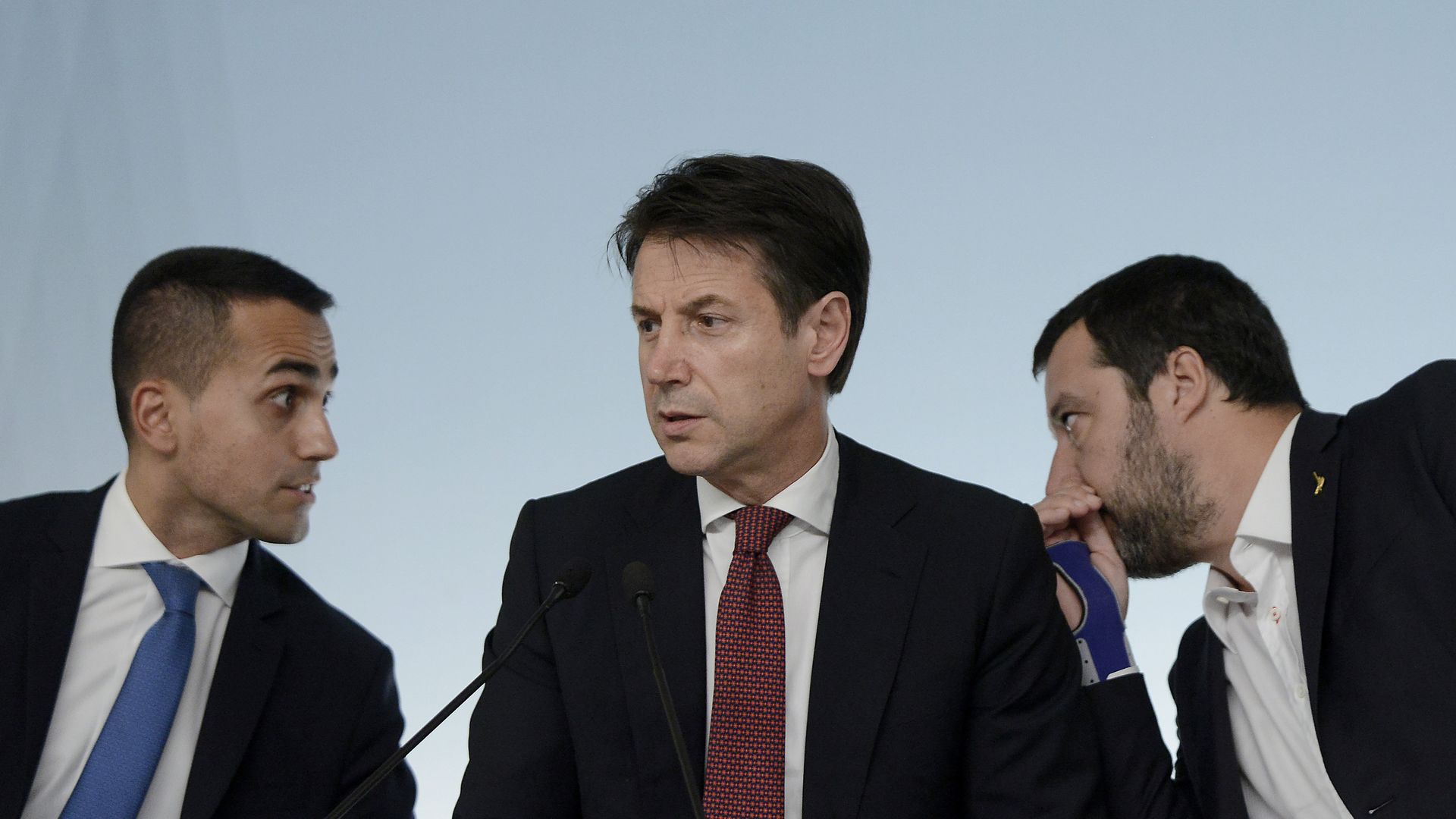Oct 23, 2018
European Commission rejects Italy's budget proposal
Add Axios as your preferred source to
see more of our stories on Google.

Italian Prime Minister Giuseppe Conte (center) with Deputy Prime Ministers Luigi Di Maio (left) and Matteo Salvini (right). Photo: Simona Granati - Corbis/Getty Images
